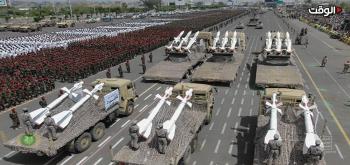Alwaght - In a no-contest vote, Nigeria's President Goodluck Jonathan was nominated as the ruling party's leader for the February 2015 elections early on Thursday, while the opposition coalition was still voting for a candidate to take him on, Reuters reported .
The upcoming presidential race is expected to be the closest fought since the end of military rule in 1999 .
Close to 3,000 delegates for the ruling People's Democratic Party (PDP) gathered in the capital Abuja to celebrate with dance and song. The vote was only a formality since the party's board had already approved the president as sole candidate .
"I stand before you to accept your nomination as the candidate of our great party. I am greatly honored...I will not fail the party. I will not fail our nation," Jonathan told the crowd .
A southern Christian, Nigeria's leader has come under fire for a mounting insurgency by Boko Haram Islamists and faces a tough re-election battle. Underlining the country's security woes, a suicide bomber killed four in Kano on Wednesday .
Two political heavyweights lead the five-strong field for the opposition All Progressives Congress (APC) ticket - former military ruler Muhammadu Buhari and ex-vice president Atiku Abubakar. Both men are Muslims from the country's north .
The APC primary results are expected to be announced later on Thursday morning .
Buhari is the frontrunner. He has huge grassroots support and is seen as one of the few leaders in the country's history who was tough on corruption after he seized power in a 1983 coup. He was deposed less than two years later .
"A respectable man like General Buhari, I'm sure he can win," said Femi Afolabi, a retired journalist from the southwest. "He's upright, disciplined and against corruption ."
Earlier on Wednesday, traffic ground to a standstill in the commercial capital Lagos as eight thousand delegates for the APC entered the national stadium to cast their ballots to the sound of beating drums and cheers .
Corruption remains a lightening rod for anger in Nigeria, where many perceive it as the root cause of the country's poverty and dysfunction. Jonathan's administration has been implicated in several oil corruption scandals, some of which it has denied, while others it has promised to investigate .
The Feb. 14 election will test whether Africa's biggest economy and top oil producer can learn from past mistakes that have often seen votes marred by fraud and violence. Campaigning will occur against a backdrop of plunging fiscal revenues and a currency devaluation triggered by falling oil prices .
The likely contest between an opposition candidate from the largely Muslim north and an incumbent from the mostly Christian south sets up a regional and sectarian divide that could be a flashpoint for trouble .
Jonathan's bid for a second elected term has upset northern elites, who argue he broke an unwritten deal that power rotate between north and south every two terms. He ran in 2011, after replacing northerner Umaru Yar'Adua, who died in office in 2009 .
Northern anger has also been fueled by growing perceptions of a shift in power toward the more prosperous south. More than 800 people were killed and 65,000 displaced in three days of rioting in the north after Jonathan's 2011 win against Buhari .
Abubakar has largely campaigned on the achievements of his government under ex-president Olusegun Obasanjo, which include getting Nigeria's debt written off and creating Economic and Financial Crimes Commission (EFCC) to fight graft and fraud .



























